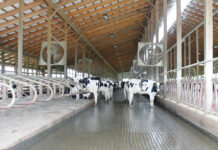MORGANTOWN, W.Va. – Researchers at West Virginia University have concocted a “fowl” substance that one day could help fuel the world’s energy needs and abate a growing problem with agricultural waste.
The mixture of diesel fuel and pressure-treated chicken litter creates up to 35 percent more fuel without diminishing its fuel properties, said Al Stiller, a chemical engineering professor in the College of Engineering and Mineral Resources.
“We have an opportunity to decrease our dependence on foreign fossil fuels and rid our environment of potential hazards in the form of animal waste,” Stiller said.
Dual benefits. The project is timely for both the energy and agricultural industries. On the energy front, gas prices this summer rose to almost $2 a gallon in some cities, California experienced blackouts, and concerns over reliance on foreign fuels have grown since the Sept. 11 terrorist attacks.
Meanwhile, the agricultural industry is increasing meat and poultry production to feed a growing world population. This makes more animal waste, and streams and rivers are already polluted with runoff from fertilizer composed of nutrient-rich manure.
About the fuel. To produce the fuel, the researchers first mix chicken manure and water at a high temperature and high pressure to convert the waste to a liquid, Stiller said.
They then add the agricultural waste-water mixture to diesel fuel.
The new mixture of treated chicken manure and diesel has the same heat value as diesel fuel alone, and the animal waste has the proper viscosity and vapor pressure to blend with the gas, he added.
Recently, the scientists tested 1.5 gallons of their new fuel in an engine at the National Energy Technology Laboratory in Morgantown. They started running the engine on standard diesel fuel, then substituted their fuel.
“To everyone’s surprise, there was no significant difference in performance,” Stiller said. “This is like hitting a home run your first time at the plate.”
The smell. But how does the diesel fuel with manure additive smell?
“Not good, but neither does standard fuel,” Stiller said. “It doesn’t smell like manure. It smells like wet cigarette tobacco.”
The fuel could actually become a “green” energy source because it would reduce the rate at which greenhouse gases are released into the air, he added.
Bacteria feed off manure and create carbon dioxide – a greenhouse gas. The more manure used for fuel means less for bacteria to convert into carbon dioxide.
Johnson said the fuel could be used in trucks, buses, home heating and power plants.
Next step. The researchers’ next step is to try to convert the chicken manure into fuel without having to transport it from the farm.
With that in mind, they are working with Louis Hamrick of Northco Corp. of Morgantown to design and build the necessary equipment to install on a local farm.
While the fuel, if perfected, would help alleviate energy concerns, Stiller predicts the product could have profound implications on the agricultural industry.
Helping ag industry. Although the researchers have experimented with chicken manure so far, other animal waste would yield the same results.
“I think agricultural sciences will change,” he said. “Instead of animal manure being a waste to be disposed of, it will be a source of fuel. These changes will be global because every society produces the same kind of material.”









